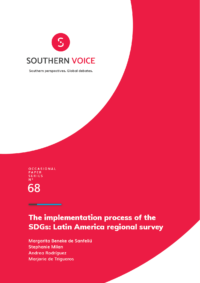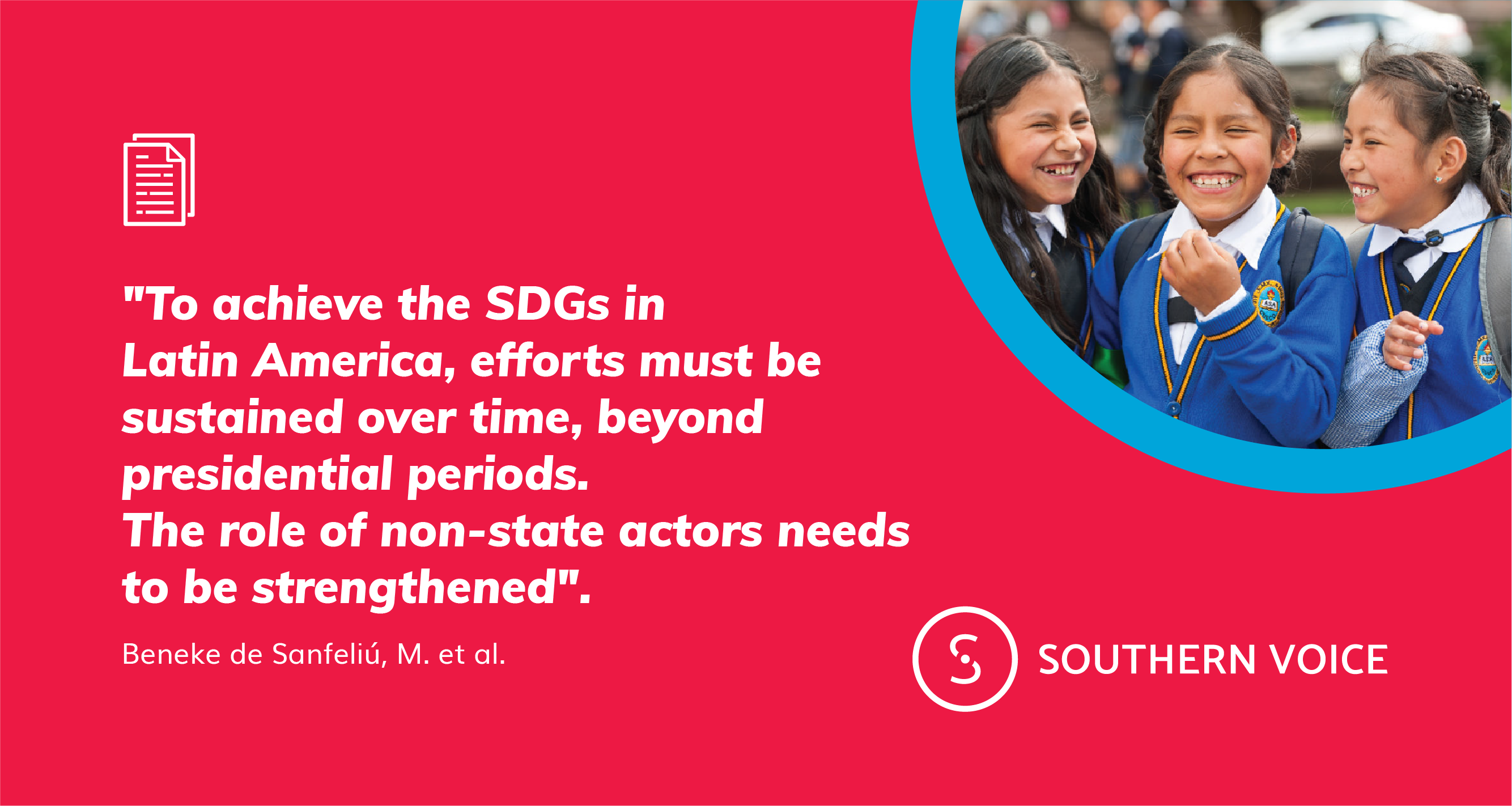 Latin American countries are diverse, both in their size and population and in their level of development. Only four countries have reached high-income status in recent years; the rest are middle-income countries. A key contribution of this survey is its focus on middle-income countries. The research questions explored are:
Latin American countries are diverse, both in their size and population and in their level of development. Only four countries have reached high-income status in recent years; the rest are middle-income countries. A key contribution of this survey is its focus on middle-income countries. The research questions explored are:
• How are national governments and regional entities integrating the 2030 Agenda into their policies, budgets, and initiatives?
• Are governments, international agencies, and non-state actors committing to the success of the 2030 Agenda?
• Are there areas of critical concern for the region that may hinder progress towards achieving the SDGs?
The analysis is based on secondary data and a comprehensive literature review, including 2016 to 2018 Voluntary National Reviews (VNR). This study brings together key findings of the many and diverse efforts (actions, studies and publications, and experiences) that governments, regional and international organisations, and other development partners have made to contribute to achieving the SDGs. For Latin America, the integrated nature of the 2030 Agenda provides a particularly relevant framework to address the multidimensional approaches needed to break the development traps and to turn them into opportunities to achieve a higher level of development.


